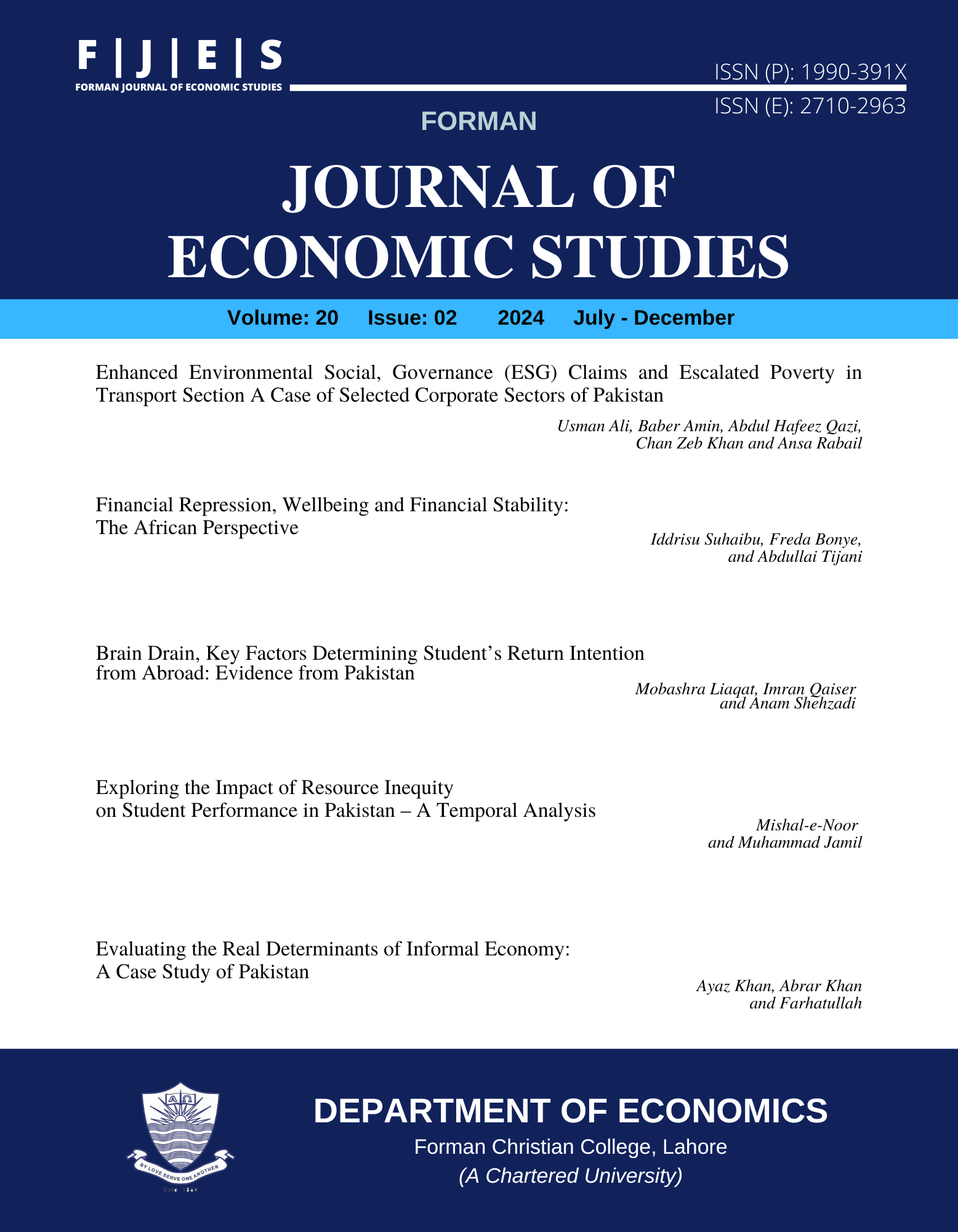Exploring the Impact of Resource Inequity on Student Performance in Pakistan – A Temporal Analysis
Keywords:
resource inequity, demand side educational resources , supply side educational resourcesAbstract
In the wake of the global learning crisis, the present study explores the concept of resource inequity and its consequential impact on student performance in Pakistan. To achieve this end, it incorporates both, the demand-side and supply-side educational resources and evaluates their impact on proficiency in literacy and numeracy, utilizing nationally representative cross-sectional microdata collected by the National Education Assessment System (NEAS). The focus of the study is on Grade 4 students who appeared in the National Assessment Test (NAT) in 2008 and 2016, allowing us to conduct a temporal analysis of the results. The dataset is comprised of 11,943 students from 2008 and 13,004 from 2016. For empirical estimation, multiple linear regression analysis is performed. The findings have highlighted that teachers’ conduct in the classroom consistently emerged as the most influential factor in its association with student performance. School infrastructure, easy access to school, socio-economic environment around a student, students' conduct at home, along student engagement in co-curricular and extra-curricular activities also significantly improved student performance. The study has concluded that supply-side educational resources have a stronger impact on student performance than demand-side educational resources. These insights offer practical guidance for policymakers to develop strategies addressing both immediate and long-term challenges in Pakistan's education system, aiming to improve student performance and ensure educational resource equity.





